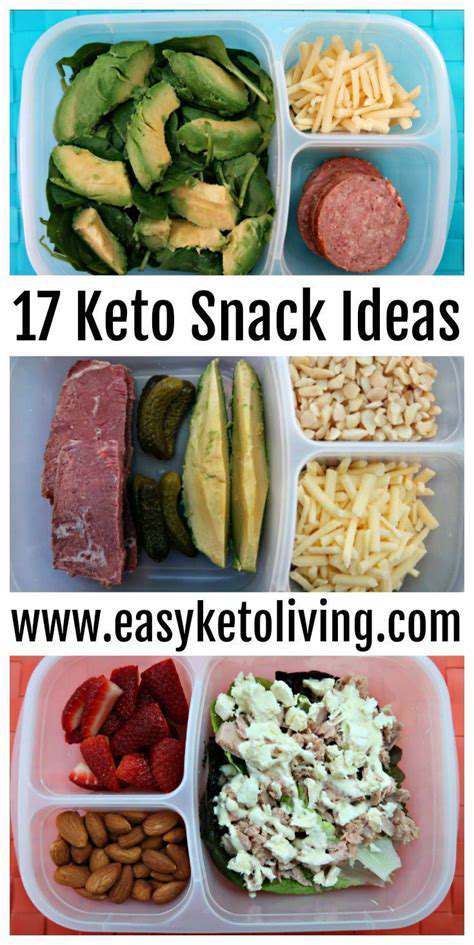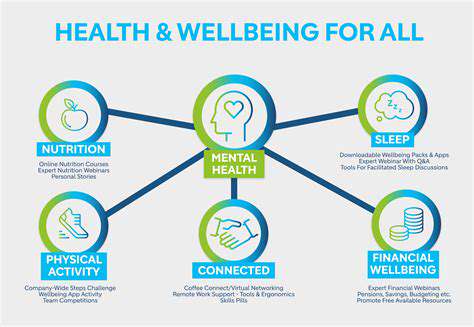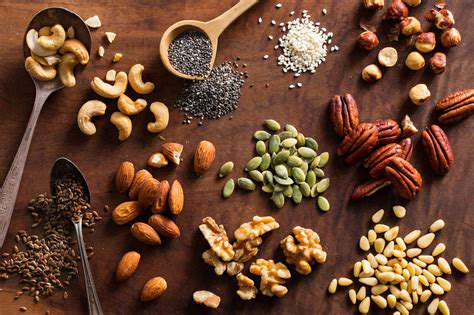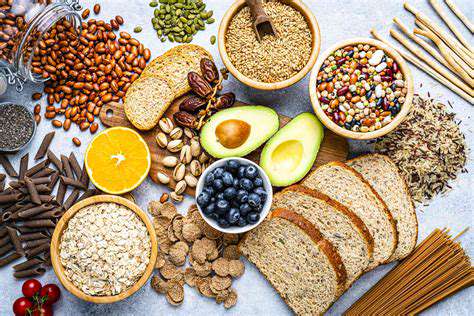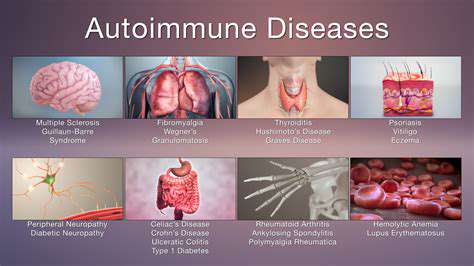Eating for Better Brain Function and Memory
Brain-Boosting B Vitamins
B vitamins function like the spark plugs of brain metabolism. Specifically, vitamins B6, B9 (folate), and B12 work together to convert food into the energy our neurons need to fire efficiently. They're also essential for producing neurotransmitters - the chemical messengers that allow brain cells to communicate.
Whole food sources like lentils, sunflower seeds, and pasture-raised eggs provide these nutrients in their most bioavailable forms. However, certain populations, including older adults and those with digestive concerns, may struggle to absorb adequate amounts. This is why many neurologists recommend periodic blood testing to identify any potential deficiencies early.
The Significance of Protein
Every thought we have and memory we form relies on protein-derived amino acids. These molecular building blocks assemble the neurotransmitters that shuttle signals between billions of neurons. Without sufficient high-quality protein, our brains simply can't manufacture enough of these crucial chemical messengers.
Nutrition experts suggest distributing protein intake evenly throughout the day. Excellent choices include wild-caught fish, organic poultry, tempeh, and a variety of legumes. What many people don't realize is that protein needs actually increase with age, making this nutrient particularly important for maintaining cognitive function in later years.
Hydration and Electrolyte Balance
Considering our brains are approximately 75% water, it's no surprise that even mild dehydration can cloud thinking. The latest neuroscience research shows that proper fluid balance affects everything from decision-making speed to emotional regulation.
While plain water forms the foundation, electrolytes like potassium and sodium help maintain the electrical charges neurons need to communicate. Coconut water, bananas, and mineral-rich broths can help replenish these vital minerals during periods of increased need.
Healthy Fats for Cognitive Function
Beyond the well-known omega-3s, other beneficial fats play equally important roles in brain health. Monounsaturated fats from extra virgin olive oil and avocados help maintain cell membrane flexibility, while certain polyunsaturated fats support the formation of new neural connections.
Nutritional anthropologists note that human brains evolved eating significantly more of these healthy fats than the modern Western diet typically provides. Incorporating a handful of mixed nuts daily or drizzling olive oil over vegetables can help bridge this evolutionary gap.
Mindful Management of Stress
Chronic stress doesn't just feel unpleasant - it physically alters brain structure over time. Elevated cortisol levels can actually shrink the hippocampus, our memory center, while impairing prefrontal cortex function (responsible for decision-making and focus).
Neuroscience now confirms what ancient traditions long suggested: practices like meditation, forest bathing, and controlled breathing exercises can literally reshape our brains. The key is consistent practice - even just 10 minutes daily of focused relaxation can produce measurable benefits within weeks. Many cognitive specialists now consider stress reduction as vital to brain health as proper nutrition.
Fueling Your Brain: Foods to Prioritize
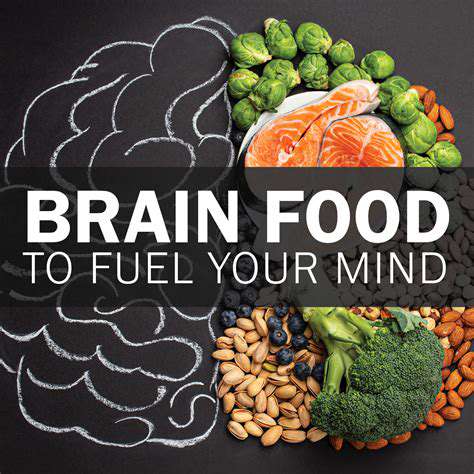
Fueling Your Brain with Nutrient-Rich Foods
The connection between diet and cognitive performance grows clearer with each new study. What we eat directly influences neurotransmitter production, neural plasticity, and even gene expression related to brain function. This explains why people report noticeable differences in mental clarity when shifting to whole food diets rich in plants, quality proteins, and beneficial fats.
Modern nutritional psychiatry emphasizes the gut-brain axis, revealing how a diverse microbiome supports cognitive health. Fermented foods, fiber-rich plants, and polyphenol-containing items like dark chocolate and green tea all contribute to this crucial ecosystem.
The Power of Omega-3 Fatty Acids
DHA, a primary omega-3 in brain tissue, constitutes about 15% of the fatty acids in our cerebral cortex. This explains why children with adequate DHA intake during development often show advanced cognitive abilities, and why adults maintain better memory retention with regular consumption. Smaller cold-water fish like sardines and anchovies offer concentrated sources with lower mercury risk than larger species.
For vegetarians, algae-based supplements provide direct sources of DHA and EPA. Emerging research suggests these plant-derived versions might be even more efficiently utilized than fish-based options.
The Importance of Antioxidants
Oxidative stress acts like rust on brain cells, gradually degrading their function. The most protective antioxidants often have specific affinities for neural tissue. For example, the anthocyanins in blueberries cross the blood-brain barrier readily, while the EGCG in green tea shows particular effectiveness at protecting dopamine-producing neurons.
What's revolutionary in recent findings is how certain antioxidants may enhance neurogenesis - the formation of new brain cells - even in adulthood. This challenges the long-held belief that we're born with all the neurons we'll ever have.
The Role of Fruits and Vegetables
Plant foods deliver nutrients in synergistic combinations that supplements can't replicate. The vitamin C in citrus enhances iron absorption from leafy greens, while the healthy fats in avocado boost carotenoid uptake from carrots and sweet potatoes. This nutritional teamwork explains why whole food approaches outperform isolated nutrient interventions for long-term brain health.
Dark leafy greens deserve special mention - their high folate content supports methylation processes crucial for neurotransmitter synthesis and DNA repair in brain cells.
Hydration and Brain Performance
Cognitive scientists have quantified hydration's impact with striking precision: just 1-2% dehydration can impair arithmetic skills, short-term memory, and visuospatial processing. The brain's thirst mechanisms aren't always reliable, making proactive hydration especially important during mentally demanding tasks.
Herbal teas and water-rich foods like cucumbers and melons contribute to overall fluid intake. Many find that keeping a glass carafe at their workspace serves as both a visual reminder and makes hydration more appealing.
Addressing Dietary Deficiencies and Potential Challenges

Identifying Potential Deficiencies
Nutrient gaps often manifest subtly before becoming full deficiencies. Persistent brain fog, slower recall, or difficulty concentrating might signal inadequate B vitamins or omega-3s. Modern soil depletion and food processing mean even those eating healthy diets may fall short on key nutrients. Hair mineral analysis and comprehensive blood panels now allow for precise identification of these gaps.
Certain medications, chronic stress, and digestive issues can dramatically increase nutritional needs. Functional medicine practitioners often recommend periodic testing for those in high-risk categories.
Dietary Strategies for Improvement
Strategic food pairing maximizes nutrient absorption. Combining vitamin C-rich foods with plant-based iron sources, or eating fat-soluble vitamins with healthy fats, ensures better utilization. Fermentation and sprouting techniques can enhance mineral bioavailability from grains and legumes by 30-50%.
For brain-specific needs, prioritizing foods like liver (rich in choline), oysters (packed with zinc), and pumpkin seeds (high in magnesium) can address multiple potential deficiencies simultaneously.
Supplementing for Optimal Results
While food should always come first, targeted supplementation bridges gaps when dietary changes alone prove insufficient. The most commonly recommended brain-supportive supplements include high-quality fish oil, methylated B vitamins (especially important for those with MTHFR mutations), and vitamin D3. Always opt for third-party tested products to ensure purity and potency.
Timing matters too - taking fat-soluble nutrients with meals enhances absorption, while certain minerals compete for absorption and are best taken separately.
The Importance of Professional Guidance
Self-prescribing supplements can be risky, as nutrient interactions and individual biochemistry vary widely. A qualified nutritionist can identify which forms of nutrients (like magnesium glycinate vs. oxide) work best for specific needs and which combinations to avoid. They can also recommend appropriate testing to monitor progress.
This guidance becomes especially crucial for those managing neurological conditions, as certain supplements may interact with medications or affect neurotransmitter balance in unexpected ways.
Long-Term Maintenance and Prevention
Sustainable brain nutrition means developing lifelong habits rather than temporary fixes. Seasonal eating ensures dietary diversity while meal prepping prevents reliance on processed convenience foods during busy periods. Regular nutrition check-ins help adjust intake as activity levels, stress, and other factors change.
Emerging research on chrononutrition suggests that aligning food intake with circadian rhythms may further optimize brain nutrient utilization. This means consuming more carbohydrates earlier in the day when insulin sensitivity is highest, for example.
